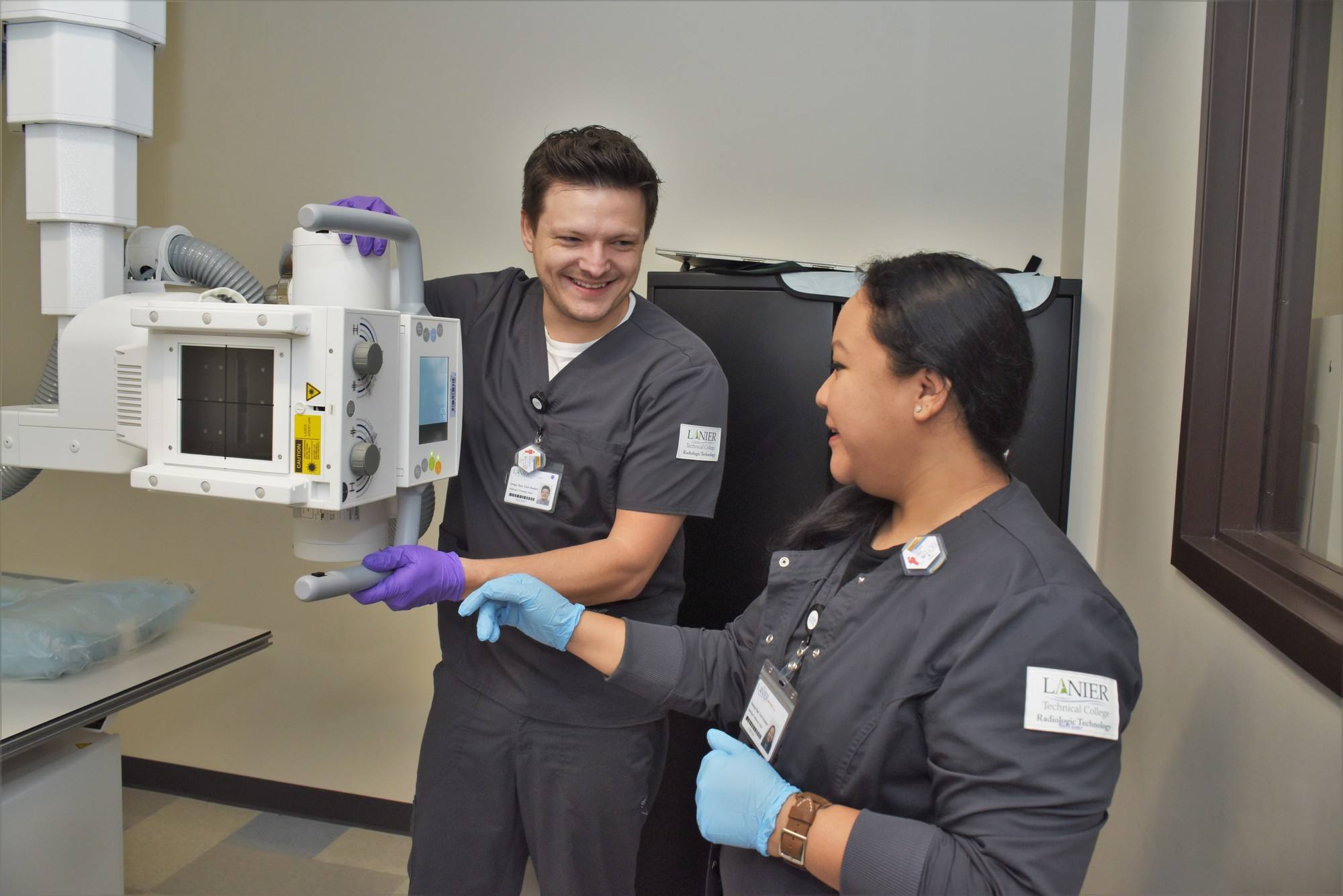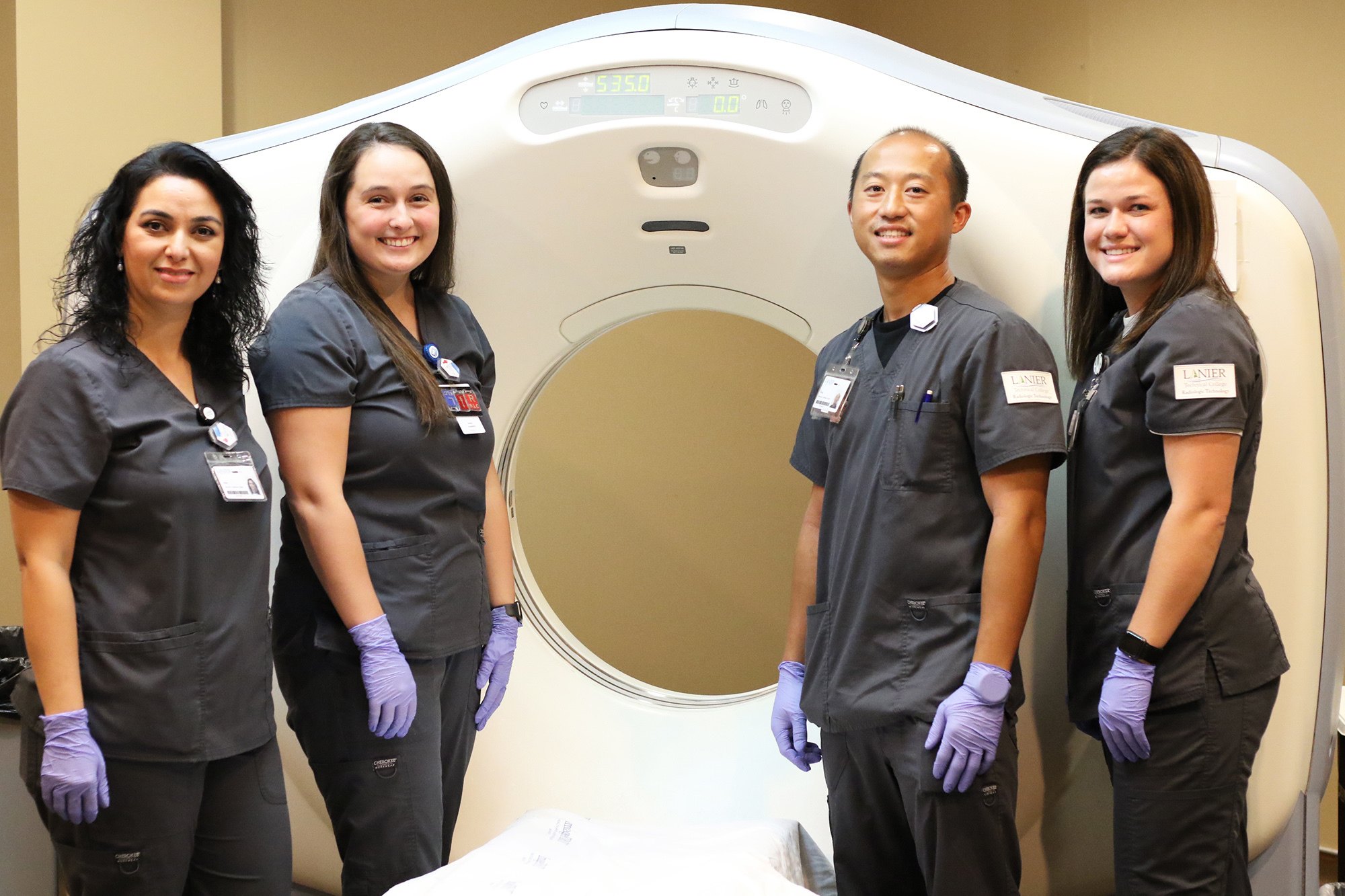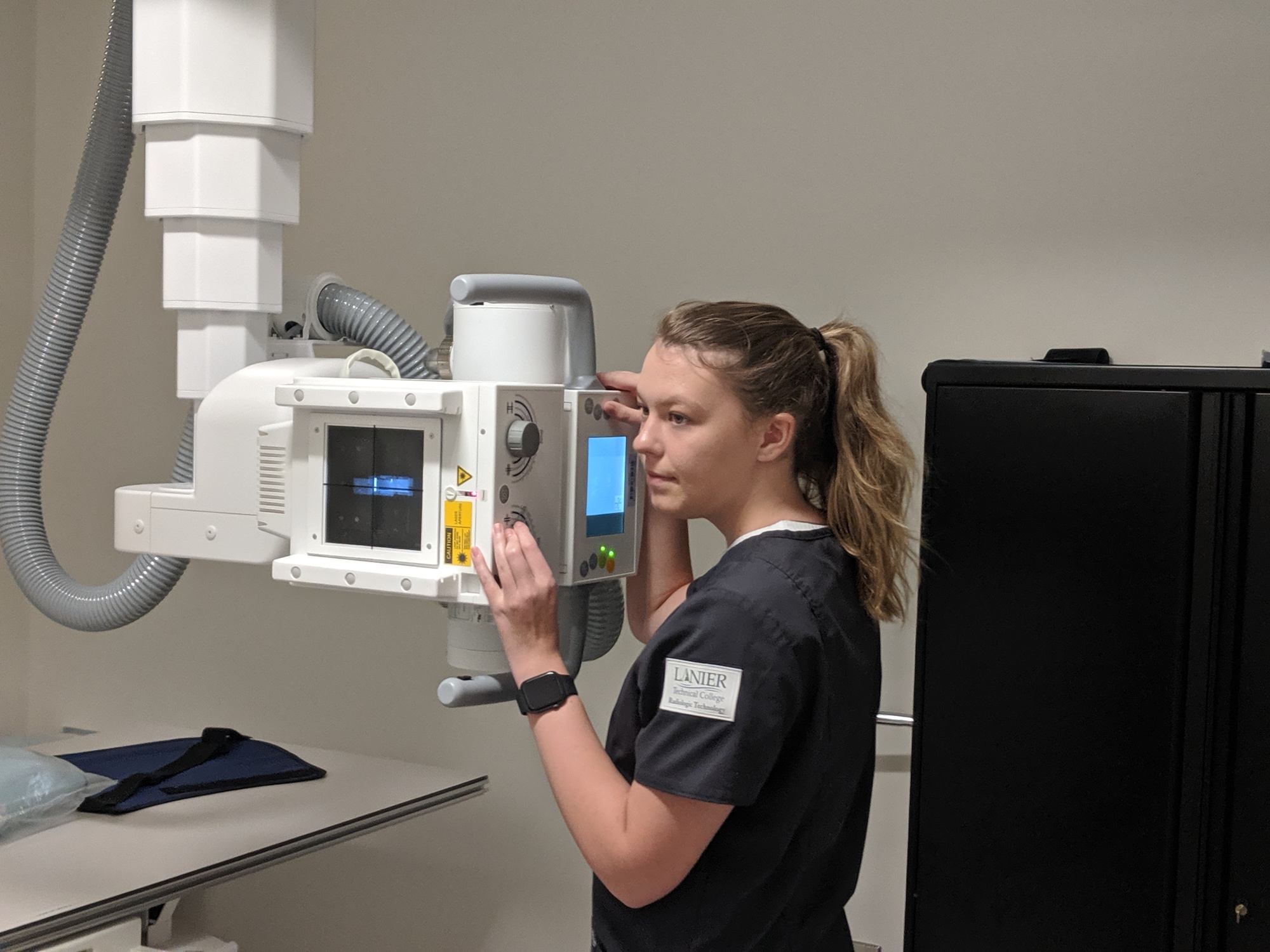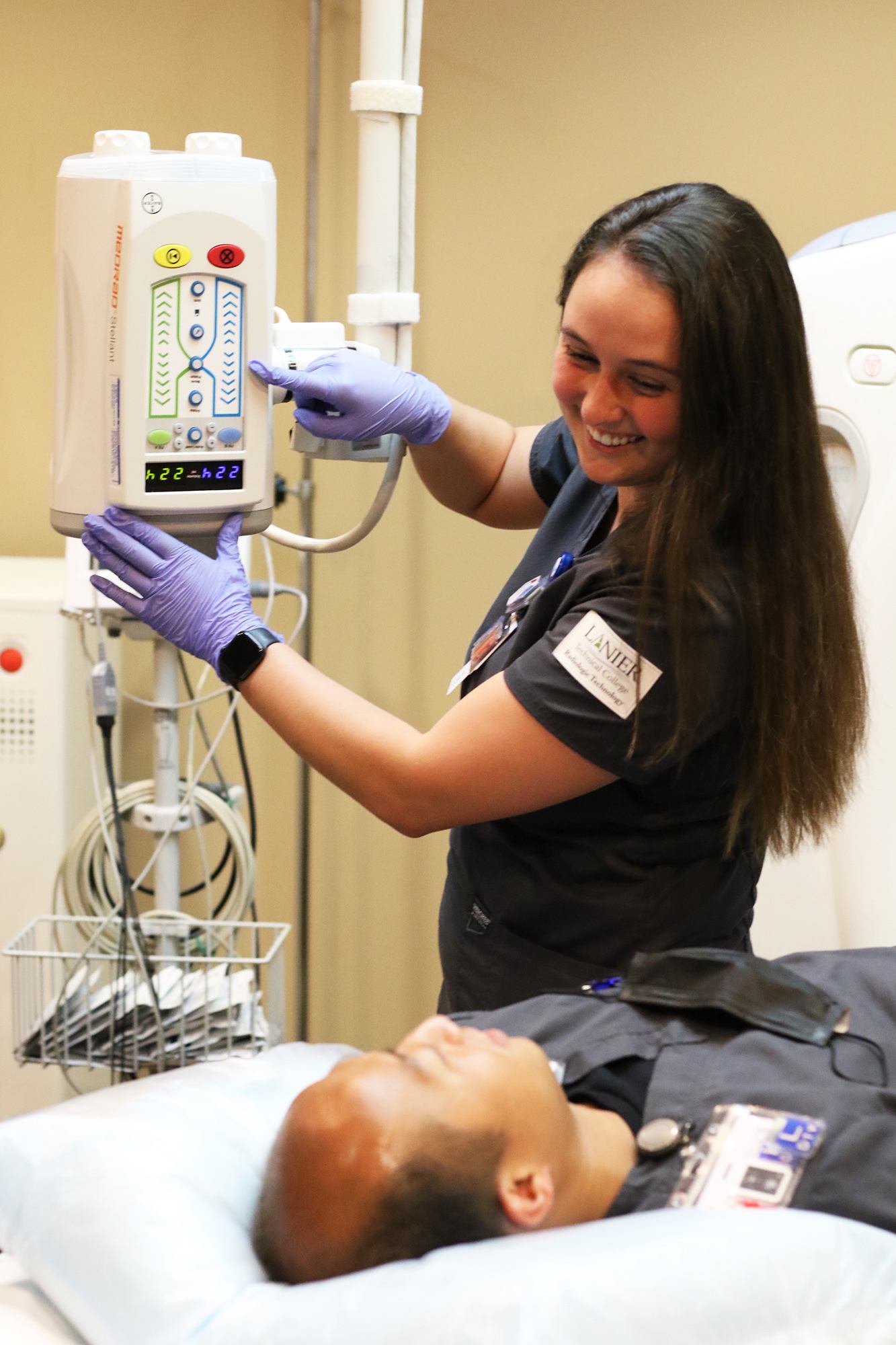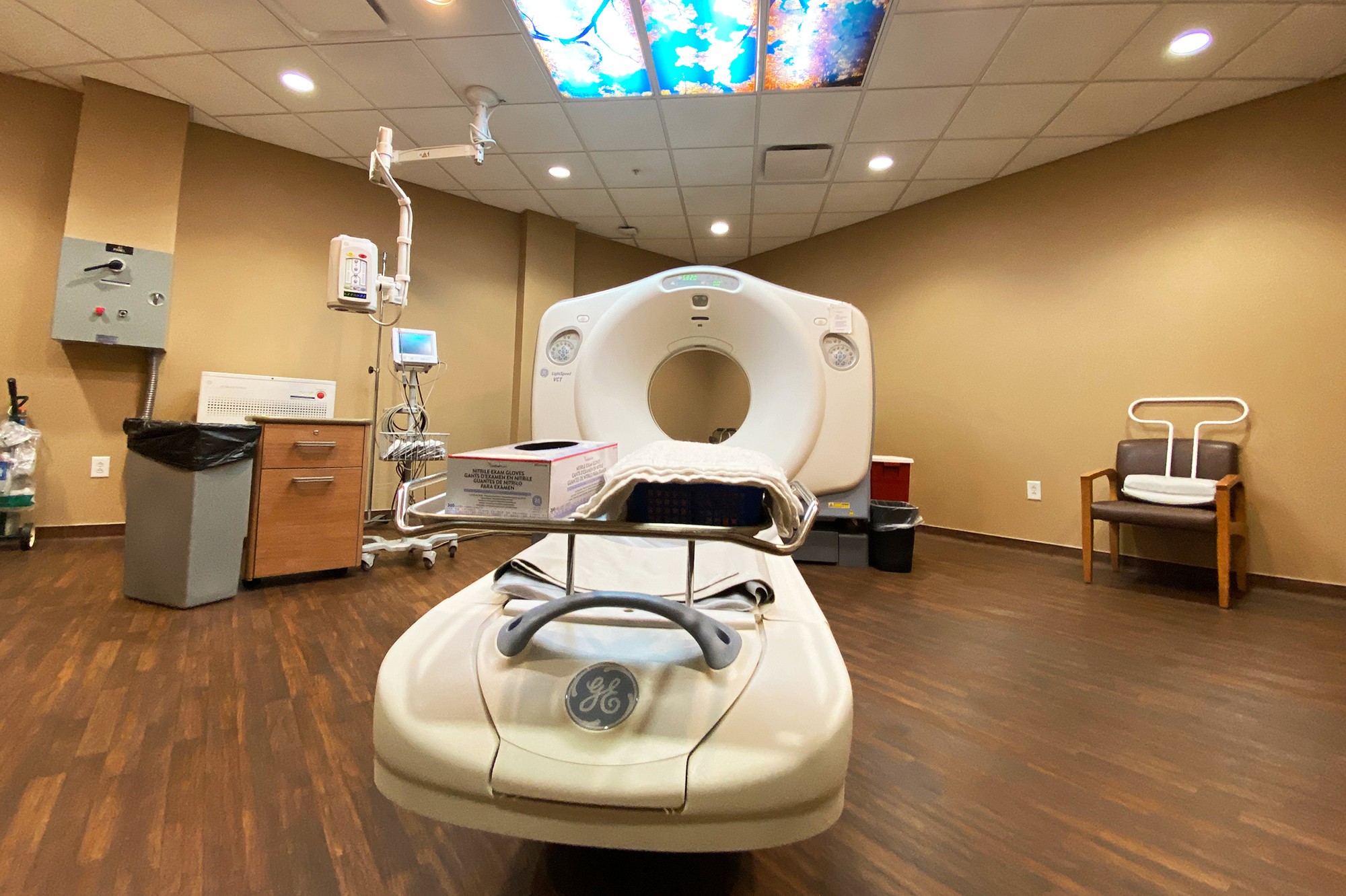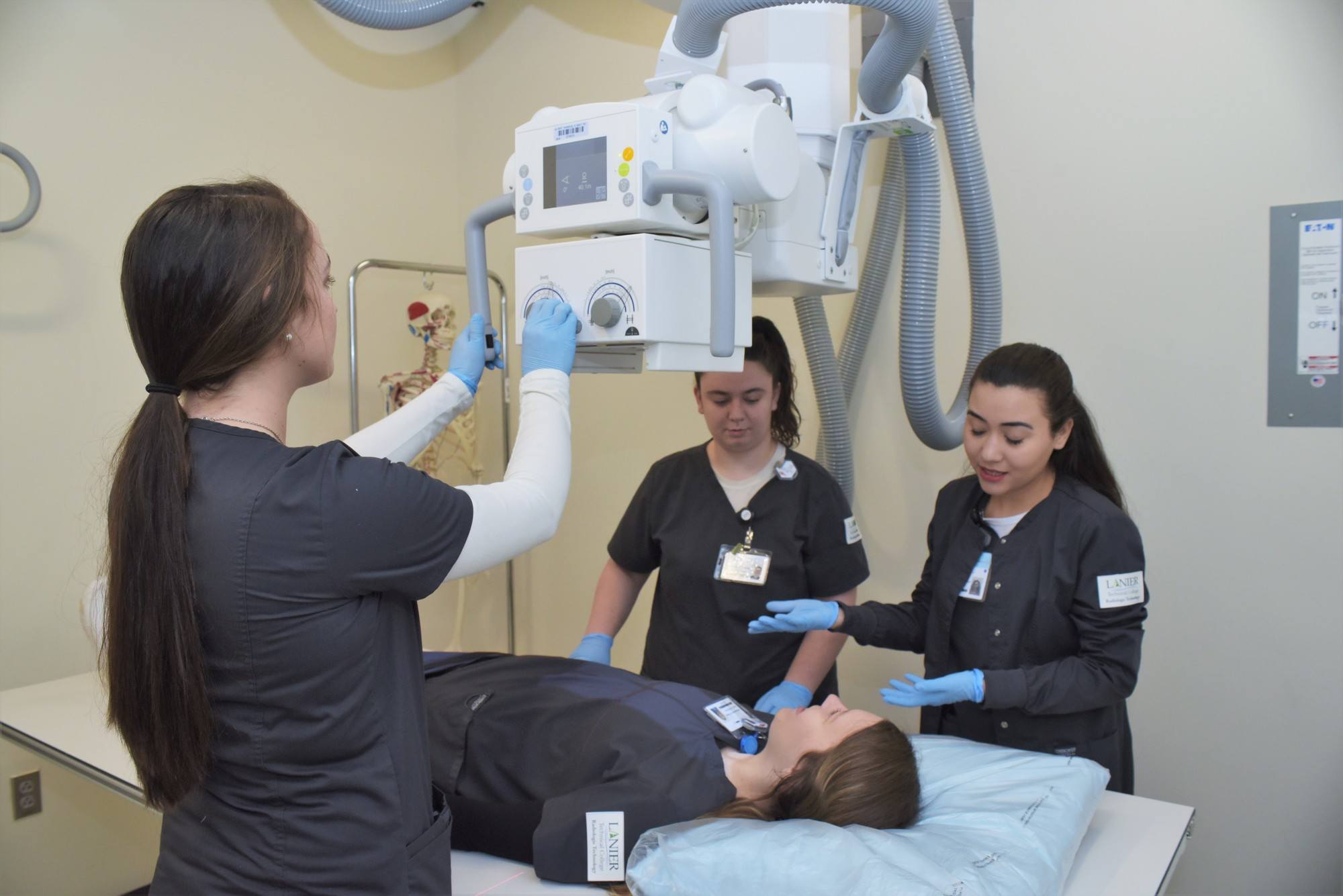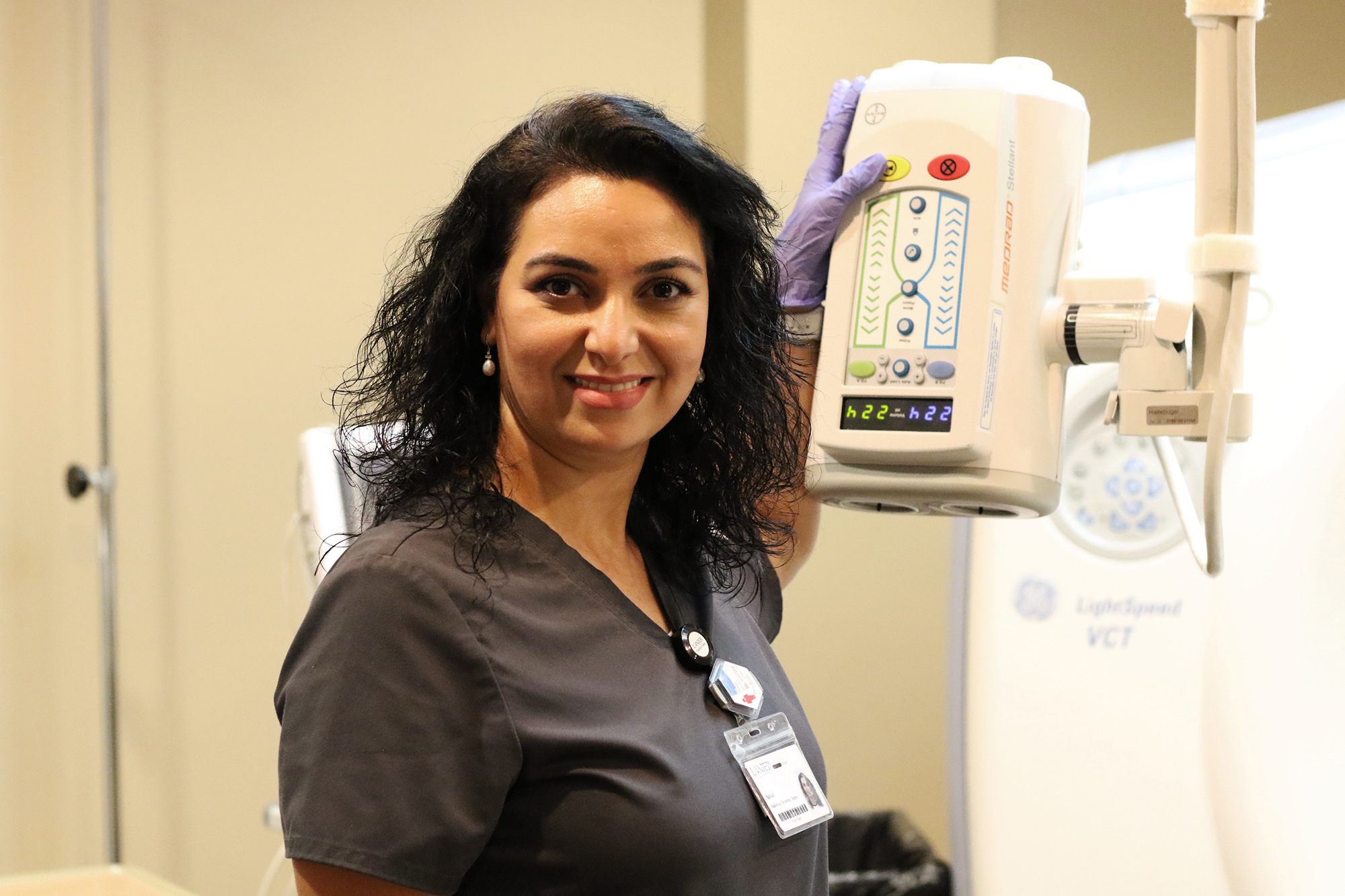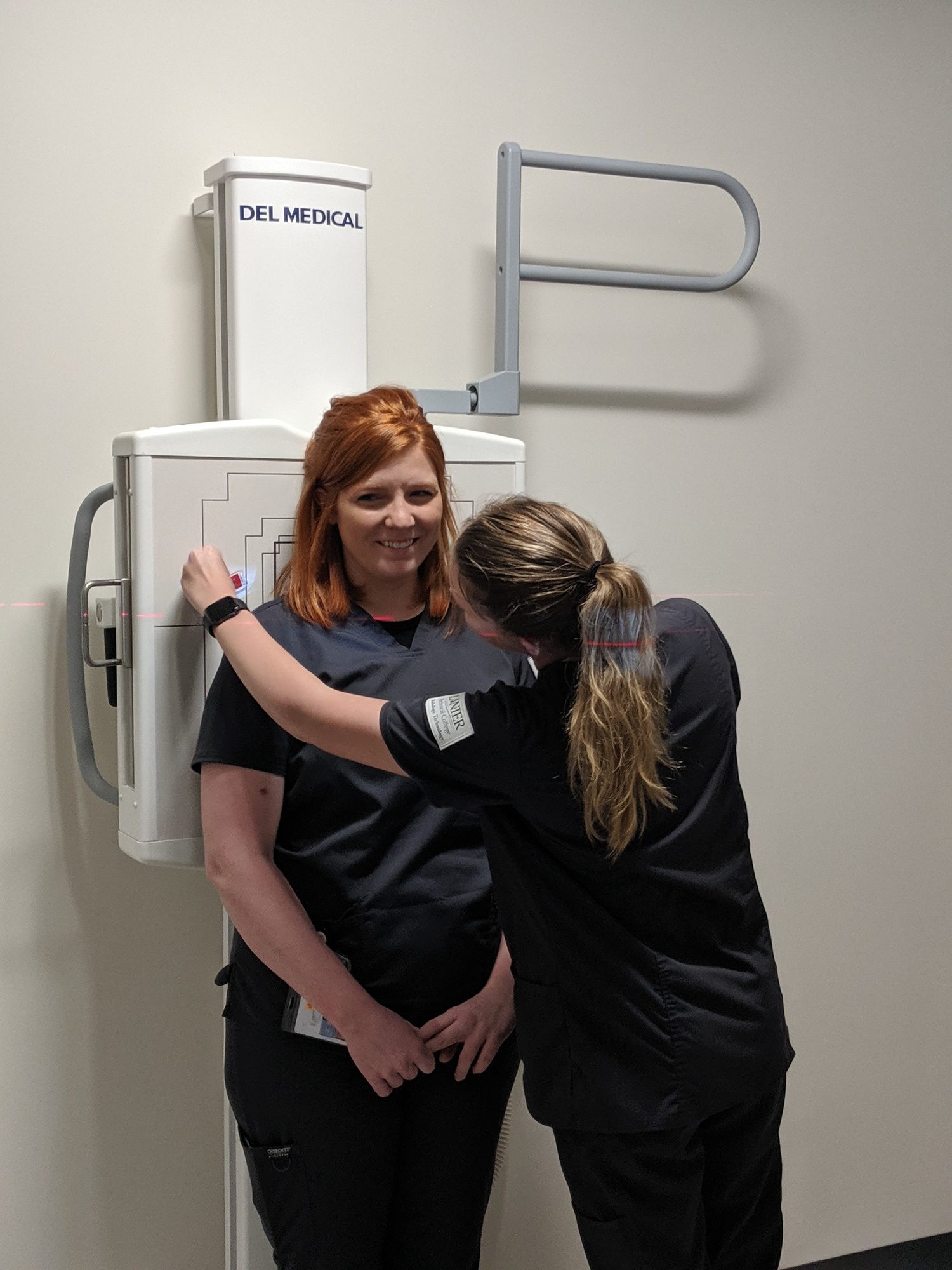Radiologic Technology
Program Description
The Radiologic Technology program is a sequence of courses that prepares students for positions in Radiologic departments and related businesses and industries. Learning opportunities develop academic, technical, and professional knowledge and skills required for job acquisition, retention, and advancement. The program emphasizes a combination of didactic and clinical instruction necessary for successful employment. Program graduates receive a Radiologic Technology Associate of Applied Science Degree and are eligible to sit for the national certification exam to become a registered radiologic technologist. The exam is administered by the American Registry of Radiologic Technologist.
Campuses Offered
- Hall
Program Paths
Degree Level:
Certificate Level:
Program Advisors
Laura Hirshberg
Radiologic Technology Program Clinical Coordinator and Instructor Radiologic TechnologyFrequently Asked Questions
When are the Information / Application Sessions?
All Application/Information sessions are in person meetings.
- Applications, TEAS test scores and transcripts are due May 31, 2026.
- Application and Information Sessions for the Radiologic Technology Program are only held in the spring. Applicants are required to attend to obtain an application.
- The completed application must have all pages signed and turned in upon completion of the session.
How do I Apply to this Program?
Applications for the Radiologic Technology Program are only available to those who show up in person to one of the Information/Application sessions. See details in FAQ above. The deadline for all application materials is May 31st each year.
What is the Mission Statement for this program?
Within the mission of Lanier Technical College, the program’s mission is to educate radiologic technology students in the knowledge, skills, and attitudes to become qualified professional practitioners who provide quality service and care to the community. The program also promotes long-term professional growth by fostering graduates to become multi-skilled practitioners in the radiologic sciences. The program is also designed to broaden intellectual perspectives, stress ethical and humane values, and prepare students to be productive and responsible citizens who adequately respond to social, cultural, and economic challenges.
What are the Program Goals and Student Learning Outcomes?
- Goal: Students will be clinically competent.
Student Learning Outcomes:- Students will position patients correctly.
- Students will utilize radiation safety.
- Goal: Students will demonstrate communication skills.
Student Learning Outcomes:- Students will demonstrate written communication skills.
- Students will demonstrate oral communication skills.
- Goal: Students will develop critical thinking skills.
Student Learning Outcomes:- Students will respond appropriately during trauma exams.
- Students will produce diagnostically acceptable images.
- Goal: Students will model professionalism.
Student Learning Outcomes:- Students will ensure patient safety.
- Students will demonstrate work ethics.
Where can I find information about TEAS Testing?
Please visit TEAS Testing for information.
NOTE: The TEAS VII Allied Health Entrance Test is now required for all applicants. The TEAS as normed for Allied Health programs was formerly called the Health Occupations Basic Entrance Test (HOBET).
Where can I find out about the Computed Tomograpy (CT) Technical Certificate?
The Computed Tomography (CT) technical certificate program provides educational opportunities to the post-graduate registered Radiologic Technologist, registered Radiation Therapist and registered Nuclear Medicine Technologist in good standing. It provides students with the knowledge needed to perform CT exams, and to sit for the Post-Primary Computed Tomography Certification Examination. The academic component is designed to meet competency requirements of the American Registry of Radiologic Technologists (ARRT) exam in Computed Tomography, as well as providing for continuing educational requirements.
Computed Tomography Specialist Intent Form
Computed Tomography (CT) Program Application and Competitive Requirements
When do I apply for the criminal background check and Drug Screen?
Background checks and drug screens are not performed until after the applicant has been accepted into the program and before the first day of class. This is a requirement for clinical rotations.
Some clinical sites may not accept students with criminal records and may refuse the student due to a failed drug screen. If an applicant has a criminal background they may not be allowed to take the national registry exam given by the American Registry of Radiologic Technologist (ARRT).
A pre-application process can be followed by contacting the ARRT at https://www.arrt.org/ to ascertain if the applicant will be allowed to take the registry exam.
What are my chances of getting into the program?
A competitive selection process is used to choose students for each upcoming cohort. The top 28 applicants will be selected based on GPA of the 8 pre-requisite classes and the ATI TEAS VII Test Scores; bonus points are available.
For a detailed breakdown of how the program calculates admission points to the program, including bonus points, please visit: Radiologic_Technology_Admissions_Points_Worksheet.
Where can I view the Program Effectiveness Data?
Program Effectiveness Data Chart
Program effectiveness data is also via the JRCERT website.
Program Accreditation
The radiography program is accredited by the
Joint Review Committee on Education in Radiologic Technology
20 North Wacker Drive, Suite 2850
Chicago, IL 60606-3182
312-704-5300
Email: mail@jrcert.org
The program’s current accreditation award is 8 years. General program accreditation information and the current accreditation award letter can be found here: https://www.jrcert.org/programs/lanier-technical-college/
